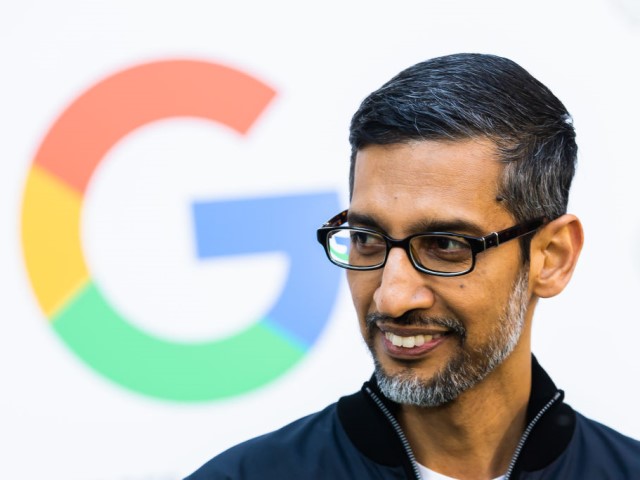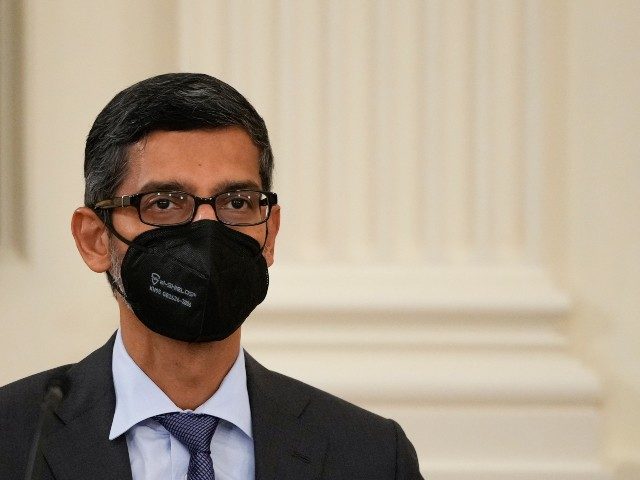The DOJ has presented more evidence in U.S. v Google, the biggest antitrust case in decades, showing that Google trained employees to avoid words and phrases that made the company “come across as monopolists.”
According to DOJ attorney Kenneth Dintzer, not only did Google cover its tracks by auto-deleting four years of internal chats, but also instructed employees since 2003 to avoid words and phrases that could cause it to run afoul of future antitrust investigations.

Sundar Pichai, CEO of Google and Alphabet, attends a press event to announce Google as the new official partner of the Women’s National Team at Google Berlin. Photo: Christoph Soeder/dpa (Photo by Christoph Soeder/picture alliance via Getty Images)
“We should be careful about what we say in both public and private,” Google’s chief economist, Hal Varian, wrote in a memo circulated to employees in 2003.
Google employees were allegedly trained to avoid the words “market share,” “scale,” “network effects,” “leverage,” “lock up,” “lock in,” “bundle,” and “tie.”
“We don’t ‘lock up’ or ‘lock in’ our customers,” and “we do not ‘leverage’ anything,” Google told its employees.
Google also conducted a training session for employees called “Antitrust Basics for Search Team,” in 2011, which told employees to avoid phrases involving “wars or sports, winning or losing.”
In opening arguments in the government’s landmark antitrust trial against the tech giant, Google’s lawyers argued that its market advantage is a result of the value it offers to consumers — not a result of backroom deals like the billions it pays to Apple annually to be the default search engine on Safari browsers, or the agreements with Android phone manufacturers that forbid them from pre-installing search engines that aren’t Google’s.
The stakes are high for Google if it loses at trial. Potential penalties range from restrictions on its ability to cut deals with other tech companies to advance its search monopoly, to a full breakup of the company.
The case is United States v. Google, 1:20-cv-03010 in the United States District Court for the District of Columbia.
Allum Bokhari is the senior technology correspondent at Breitbart News. He is the author of #DELETED: Big Tech’s Battle to Erase the Trump Movement and Steal The Election. Follow him on Twitter @AllumBokhari.

COMMENTS
Please let us know if you're having issues with commenting.